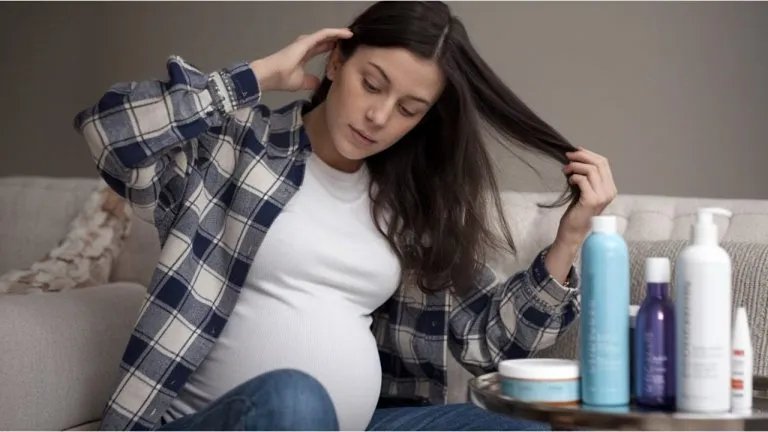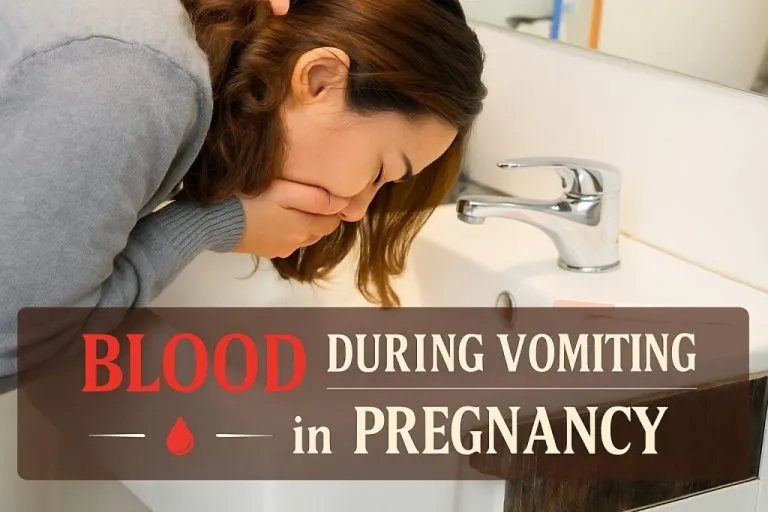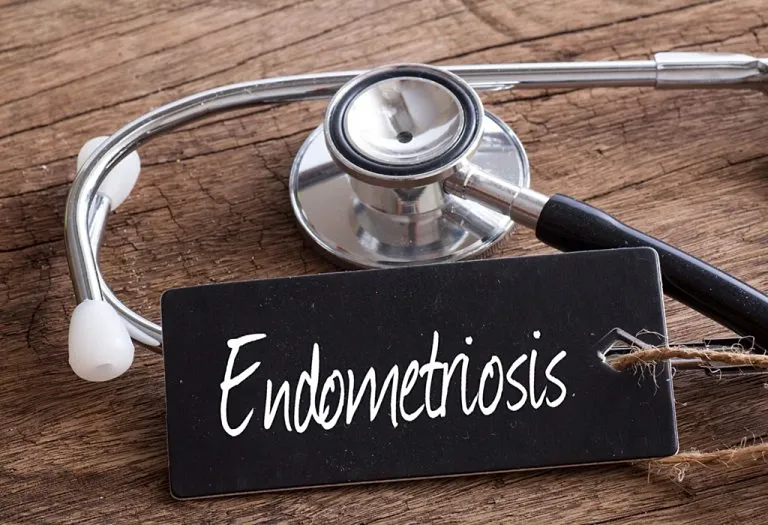Hair Care During Pregnancy – 10 Effective Tips
Pregnancy is a remarkable and transformative time in a woman’s life. As the body prepares to nurture and support new life, it undergoes numerous adjustments, many of which can have a noticeable impact on a woman’s appearance, particularly the quality, texture, and overall health of her skin and hair. Hormonal fluctuations during pregnancy can lead to unexpected hair conditions. These changes can sometimes be overwhelming, making it important to understand how to adapt your hair care routine to meet your hair’s unique needs. This article tells you how to care for your hair during pregnancy, offering tips and strategies to help you maintain shiny, strong, and healthy locks so you can feel confident and beautiful during every stage of this incredible journey.
Why Do You See Changes in Hair During Pregnancy?
A surge of pregnancy hormones is the primary cause of changes in the hair quality of moms-to-be. During pregnancy, some women may have thicker, shinier hair, while others may experience hair fall and hair thinning. During pregnancy, there is a rise in the levels of the oestrogen hormone, too, which stimulates hair growth and makes the hair remain in a growing phase. As a result, most women feel like they have thicker, more lustrous hair. After delivery, however, the oestrogen levels drop, and the hair that was in the growing phase moves into the resting phase, causing it to shed. Hence, most women experience increased hair fall post-delivery.
Although the hair growth and texture seem healthy during the pregnancy, it is after childbirth that the hair loss and damage will be apparent. Therefore, it is important to care for your tresses during pregnancy. Read on to learn about pregnancy-safe hair care.
Best Hair Care Tips While Pregnant
There are several things that you can do to ensure your hair remains healthy and lustrous during and immediately after pregnancy. You can also minimise hair fall post-delivery using some of these hair care tips during pregnancy.
1. Oil Massage
Gentle head massages with some warm oil two to three times a week are highly recommended for pregnant women. It not only boosts hair growth but also calms the scalp and helps them sleep better. You can use coconut, sesame, almond or olive oil directly to massage your scalp with your fingertips. Mixing these oils either with each other or with essential oils like lavender, rosemary, chamomile, cedarwood, lemongrass etc. is also a good idea to make the most of the head massages. When using essential oils, always use a carrier oil (coconut oil, almond oil, sesame or olive oil) and mix only 1 to 2 drops of essential oil in about 2 tbsp of carrier oil. Lavender oil has hair-growth stimulating properties, while rosemary oil helps in increasing the thickness of hair. Chamomile oil makes your hair soft and shiny, while cedarwood oil slows down hair fall.
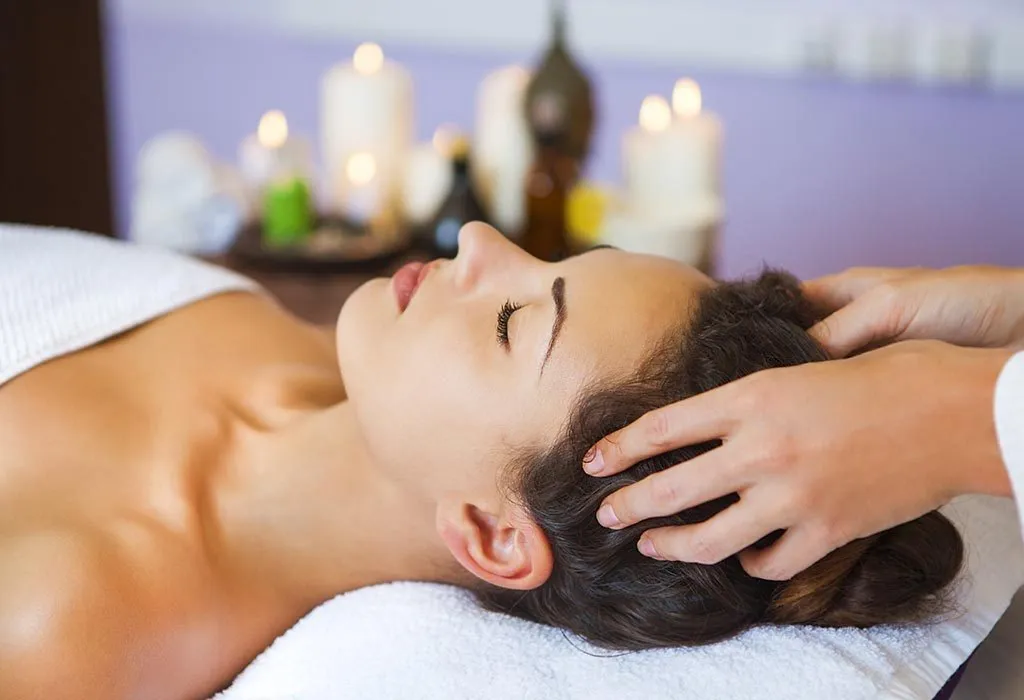
2. Choose a Good Shampoo and Conditioner
A good starting point in hair care for pregnant women is to pick a good shampoo and conditioner. Shampoos keep hair clean and smelling fresh. A good shampoo with the right ingredients can also improve hair growth and control conditions such as dandruff that cause hair fall. Pick a shampoo depending on your hair type and with natural ingredients such as argan oil, aloe vera, avocado oil or jojoba that can boost hair growth and add lustre. Conditioners moisturise and detangle your hair. A good conditioner also contains nutrients that soften and nourish the hair. It helps regulate the pH value of hair and smoothens the hair cuticle, which is an outer protective layer covering each individual hair.
3. Avoid Chemical Treatments and Colouring
During pregnancy, it is safer to avoid chemical treatments and colouring. The chemicals could be absorbed by your scalp and get passed on to the developing baby. They could also cause allergic reactions. So, avoid treatments like bleaching, perming, colouring, etc.
4. Trim the Ends Regularly
Trimming the ends of your hair regularly will help prevent split ends and rough edges. Getting a new hairstyle will also make you feel good about yourself.
5. Do Not Comb When Wet
Hair is weakest when it is wet. If you comb wet hair, you risk breaking off the strands of hair when they get caught in the comb.
6. Know Your Hair and Scalp Type
Before deciding on which shampoo, conditioner or massage oil to use, it is important to figure out what your hair type and scalp type is. You have to understand whether your hair is thick or thin, straight or curly, dull or shiny. You also need to figure out if your scalp is dry, oily, or normal. In case you have any problems like dandruff, brittle hair or thinning and limp hair, you need to pick a shampoo and conditioner suitable for that specific condition.
7. Avoid Hairstyles That Are Too Tight
Tight hairstyles that pull and stress your hair can aggravate hair fall. Avoid tight braids, cornrows, ponytails, or tight buns.
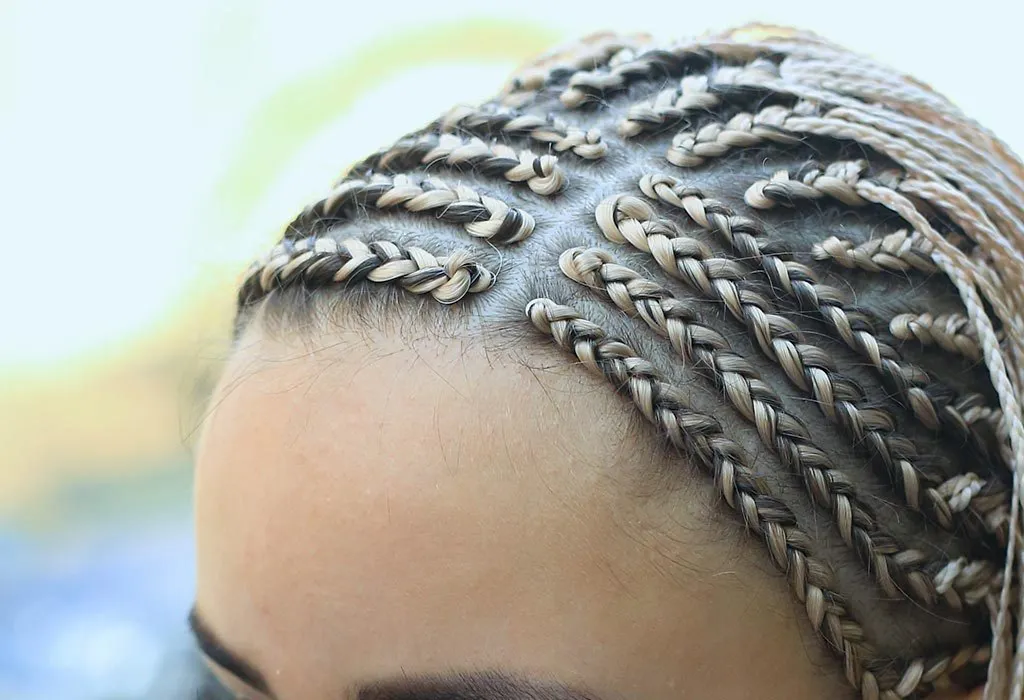
8. Eat Healthily
The key to having voluminous, lustrous hair is a balanced diet. Include fresh fruits and vegetables along with seeds, nuts, and foods rich in protein in your diet. Also, drink enough water and stay hydrated throughout the day.
9. De-Stress
Stress is a major cause of hair loss during pregnancy and after delivery. Stress triggers hair fall and also causes the body’s white blood cells to attack its own hair follicles, in a condition called ‘alopecia areata’. Go for a walk in a garden or try breathing exercises and yoga to de-stress and relax.
10. Fenugreek Seeds
Soak a tablespoon of fenugreek seeds overnight in a cup of water. Next morning, grind this into a smooth paste and apply it on your hair. Leave for an hour and then wash it off. Fenugreek is excellent for hair growth. It also strengthens hair and gives it a beautiful sheen.
FAQs
1. Is it normal to experience new hair growth in unusual places during pregnancy?
Yes, it’s common for some women to notice hair growth in unexpected areas, such as the face, abdomen, or back, during pregnancy. This is due to increased levels of androgens (male hormones) in the body. These changes are usually temporary and tend to resolve after childbirth.
2. Are there any specific hair treatments I should avoid during pregnancy?
While many hair treatments are considered safe, it’s advisable to avoid chemical treatments such as keratin straightening, Brazilian blowouts, and certain perm solutions, as they may contain formaldehyde or other harsh chemicals that could be harmful during pregnancy.
3. Can pregnancy cause changes in the scalp’s pH balance?
Yes, hormonal changes during pregnancy can alter the scalp’s pH balance, leading to conditions such as increased oiliness, dryness, or even sensitivity. These changes might cause your usual hair care products to work differently, so you may need to adjust your routine to maintain scalp health.
This was all about hair care in pregnancy. The increased post-partum hair fall can be alarming for most women. However, the increased hair loss is only because all the hair that was in the growing phase during pregnancy moves into the resting phase and tends to shed. Once the hormone levels are back to normal in the body, the hair growth and fall cycle will also return to normal. This could take several months to a year. During this time, it is important for women to maintain a balanced diet and stay hydrated to have healthy hair. Try the tips suggested in this article during pregnancy and after delivery for voluminous, shiny, and healthy hair.
References/Resources:
1. Is It Safe to Dye Your Hair While You’re Pregnant?; Cleveland Clinic; https://health.clevelandclinic.org/dyeing-your-hair-while-pregnant/; December 2021
2. Hair Treatment During Pregnancy; American Pregnancy Association; https://americanpregnancy.org/healthy-pregnancy/is-it-safe/hair-treatments-during-pregnancy/
3. Chua-Gocheco. A, Bozzo. P, Einarson. A; Safety of hair products during pregnancy (Canadian Family Physician); National Library of Medicine; https://www.ncbi.nlm.nih.gov/pmc/articles/PMC2567273/; October 2008
4. Marceau. K, Wang. W, Robertson. O, Shirtcliff. E; A Systematic Review of Hair Cortisol during Pregnancy: Reference Ranges and Methodological Considerations (Psychoneuroendocrinology); National Library of Medicine; https://www.ncbi.nlm.nih.gov/pmc/articles/PMC8634732/; October 2020
5. 10 hair care habits that can damage your hair; American Academy of Dermatology Association; https://www.aad.org/public/everyday-care/hair-scalp-care/hair/habits-that-damage-hair
6. Tips for healthy hair; American Academy of Dermatology Association; https://www.aad.org/public/everyday-care/hair-scalp-care/hair/healthy-hair-tips
7. Ebrahimzadeh-Ardakani. M, Ansari. K, Pourgholamali. H, Sadri. Z; Investigating the prevalence of postpartum hair loss and its associated risk factors: a cross-sectional study; Iranian Journal of Dermatology; https://www.iranjd.ir/article_143893_beeb7638ca983f9cefd0ca77897758bf.pdf; December 2021
Also Read:
Hair Growth during Pregnancy
Pubic Hair Removal in Pregnancy
Greasy (Oily) Hair while Pregnant
Hair Growth on Stomach when Pregnant
Getting a Haircut During Pregnancy – Is it Safe?
Was This Article Helpful?
Parenting is a huge responsibility, for you as a caregiver, but also for us as a parenting content platform. We understand that and take our responsibility of creating credible content seriously. FirstCry Parenting articles are written and published only after extensive research using factually sound references to deliver quality content that is accurate, validated by experts, and completely reliable. To understand how we go about creating content that is credible, read our editorial policy here.






